Iran’s Intelligence Minister Says ‘Enemy’ Wants To Overthrow The Regime
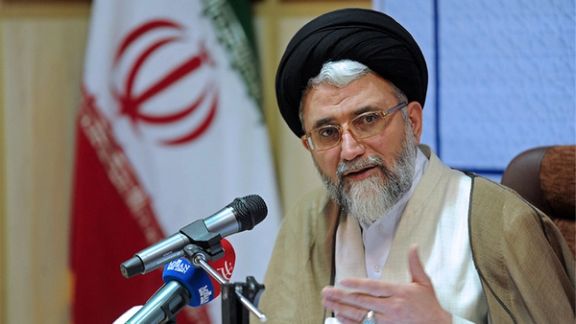
The enemy pursues regime change in Iran; Intelligence Minister Esmail Khatib told a gathering of Iranian diplomats in Tehran on Friday.

The enemy pursues regime change in Iran; Intelligence Minister Esmail Khatib told a gathering of Iranian diplomats in Tehran on Friday.
Islamic Republic official offer refer to the United States and sometimes to its allies as ‘the enemy’.
“The enemy is definitely after regime change and will not relinquish that goal. That regime change is aimed at altering the nature and essence of the Islamic Republic,” Khatib said.
The Iranian regime has blamed months of protests as a plot by foreigners and even insists that the Woman, Life, Freedom movement is a ploy by enemies to ideologically defeat the clerical political system.
Officials and senior clerics have made the issue of forced hijab a political red line and insist that if they retreat and allow women freedom in their attire, the foundations of the regime will crumble.
Ayatollah Ahmad Alamolhoda, a firebrand religious hardliner, in a speech on Friday echoed Khatib’s remarks, saying that the “enemy” encourages women to unveil because it wants to weaken and put an end to clerical rule in Iran.
Alamolhoda, a staunch supporter of Supreme Leader Ali Khamenei is the father-in-law of President Ebrahim Raisi.
Khatib also claimed that the hardliner government of president Raisi has had foreign policy success and added, “The foreign ministry will have a busy year this year.”
Iran re-established diplomatic relations with Saudi Arabia in March, but is still under Western, particularly US sanctions for persisting to expand its nuclear program.

Amid campaigning against Iran's appointment as chair of the UN Human Rights Council’s Social Forum, the Islamic Republic has gained another UN leadership position.
The regime was appointed Thursday as one of the vice-presidents of the UN General Assembly which will begin next September, drawing reactions from several members and dozens of activists. The body also appointed Iran’s envoy Heidar-Ali Balouji as the rapporteur of the Disarmament and Non-Proliferation Committee of the General Assembly and a member of the board of this committee.
The US mission in UN dissociated itself from the election and expressed its opposition to Iran's leadership throughout the UN system, saying: “Iran cannot act as an honest broker in its role as a Vice President of the General Assembly, because it has shown, time and time again, that it does not seek to enhance global peace and security, but rather works against it.”

After the election of the vice presidents of the 78th Session of the General Assembly, US Ambassador to the body, Chris Lu, said “Iran’s record, unfortunately, speaks for itself. It defies UN Security Council arms embargoes, violates the human rights of its own citizens, and exports violence and weapons, fostering insecurity and inciting violence throughout the Middle East and across the globe.”
Another US envoy, Robert Wood, referred to Iran’s persistent violations of UN Security Council resolution 2231, including pertaining to its ballistic missile program, its ongoing efforts to undermine international security, and its failure to fully cooperate with the International Atomic Energy Agency (IAEA), underlining that “a representative of Iran’s government is unfit to serve in a leadership position within this committee, even if such a position is largely ceremonial.”
Israel’s Foreign Ministry also called the decision “shameful,” saying: “In addition to murdering its own citizens, attacking innocents around the world and racing towards a nuclear weapon with the goal of wiping Israel off the map, Iran will now serve in a senior UN position.”
“This is the same country that calls for the destruction of another member state of the organization it represents,” it added, referring to the Islamic Republic's repeated call that Israel must be obliterated from the face of the Earth.
Noting that such an appointment “defies all logic and reason,” the ministry added that it is “an insult to the millions of Iranians protesting for their basic freedoms and to the justice, peace and global stability that the UN is supposed to stand for.”
The decision has caused outrage among Iranian people and activists, such as opposition figure Nazanin Boniadi, who called it “an absolute disgrace."
In May, the appointment of Iran's UN ambassador Ali Bahraini to the chair of the UN Human Rights Council 2023 Social Forum also sparked much anger and indignation. The forum to be held in Geneva on November 2 and 3 will focus on the contribution of science, technology, and innovation to the promotion of human rights including in the context of post-pandemic recovery.
After launching a petition to the UN Secretary General Antonio Guterres to cancel the appointment, UN Watch -- an independent human rights organization -- submitted a resolution to the UN to overturn the decision late in May.
Earlier in the week, a group of 26 Iranian rights groups expressed fury over the appointment, saying that according to the UN Special Rapporteur on human rights in Iran, the violence of the security forces of the Islamic Republic during the nationwide protests led to the death of hundreds, including dozens of children and women, while hundreds of other protesters were seriously injured, and thousands were arrested.
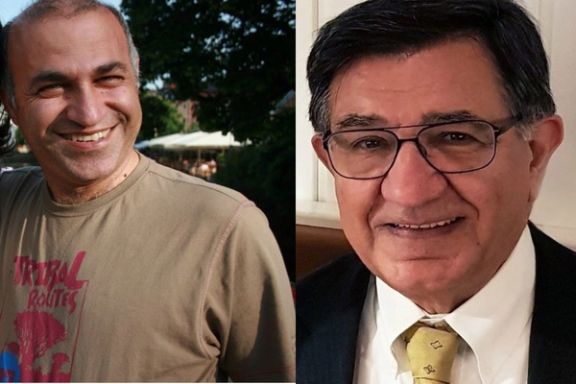
Iran has released two Austrian-Iranian hostages with reports suggesting the regime is about to free other prisoners with dual-nationality.
The Austrian Foreign Ministry said in a statement on Friday that Kamran Ghaderi and Massud Mossaheb have been freed after years of persistent diplomatic efforts. They are among unknown numbers of diplomatic hostages held by the regime.
Foreign Minister Alexander Schallenberg said: "I am very relieved that we can finally bring Kamran Ghaderi and Massud Mossaheb home after years of arduous imprisonment in Iran. They are already on their way to Austria, where their families are eagerly waiting for them.”
Ghaderi was arrested in January 2016 upon his arrival in Iran from Austria for a routine business trip. In October 2016, the Iranian judiciary sentenced him to 10 years in prison for espionage, along with the dual and foreign nationals Siamak Namazi, Baquer Namazi, and Nizar Zakka.
Mossaheb, a 73-year-old was also serving a 10-year prison term over vague national security offences. The regime arrested Mossaheb in late January of 2019 when he traveled to Iran with a delegation from MedAustron, an Austrian radiation therapy and research firm seeking to establish a center in Iran. He had worked in Iran for the International Atomic Energy Agency in 1977–78, prior to the Islamic Revolution
Reuters says a Danish national was also released but it did not release his/her name. In a statement, the Belgian government said that the Danish person was arrested in Iran in November 2022 in connection with women's rights demonstrations.
After medical tests, the three will be flown to Belgium's military airport in Melsbroek following a stop in Oman.
Schallenberg thanked his Belgian counterpart Hadja Lahbib as well as Omani Foreign Minister Sayyid Badr Albusaidi “for their valuable support," suggesting that the release was part of the recent Muscat-brokered prisoner exchange between Tehran and Brussels.
Asadollah Assadi, a former attaché at the Iranian embassy in Austria who was convicted of plotting to bomb a gathering of the exiled opposition group Mujahedin-e Khalq Organization (MEK) near Paris on June 30, 2018, was released and arrived in Tehran last Friday.
Belgian aid worker Olivier Vandecasteele, who was detained last year and sentenced to 40 years in prison and 74 lashes for alleged “spying and cooperation with the United States, money laundering and smuggling $500,000 out of Iran,” was also released as part of the deal.
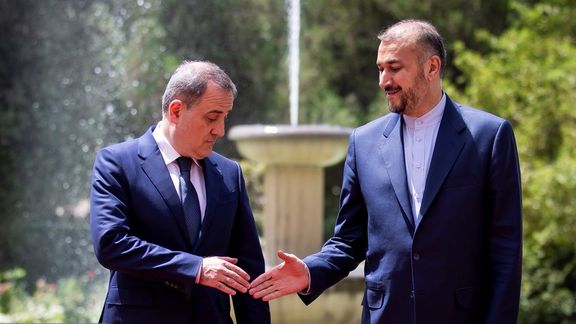
As tensions simmer between Iran and Azerbaijan, Baku has closed the Islamic Republic’s cultural attaché office in the city.
Iran’s IRNA news agency cited an unnamed official as saying that the closure of the cultural advisor’s office is due to the “recent disagreements”between the two countries.
"The Islamic Republic of Iran owns many properties in Baku, and the recent actions are one-sided and hasty excuses by the Azerbaijani side to take the properties that belong to the government of the Islamic Republic of Iran,” the official said.
Claiming that such differences can be resolved through dialogue, he played down the issue which saw iran’s diplomat sent back to Tehran and said the move was “irrational” and “emotional”.
This week, a report, claimed by an opposition group to have been hacked from the Iranian presidency servers, showed that the government is eying ways to redefine its relations with Azerbaijan.
It is the latest incident in a series of tensions which have been rising between Iran and Azerbaijan since November 2022 when both sides accused each other of engaging in terrorism and espionage in the other’s territory.
Iran has suggested Azerbaijani involvement in the October 26 attack in Shiraz claimed by the Islamic State group (Isis-Daesh) and, also accuses Baku of harboring Israeli intelligence and military elements that plan to use its territory in a possible attack against Iran’s nuclear facilities.
The two countries in early May expelled each other’s diplomats after incidents that Baku also dubbed as "terrorist attacks". These included a gunman’s attack on Azerbaijani diplomatic mission in Tehran in January after which Baku shut down the embassy and an attack on Azerbaijani lawmaker Fazil Mustafa in March, who is an outspoken critic of the Islamic Republic.
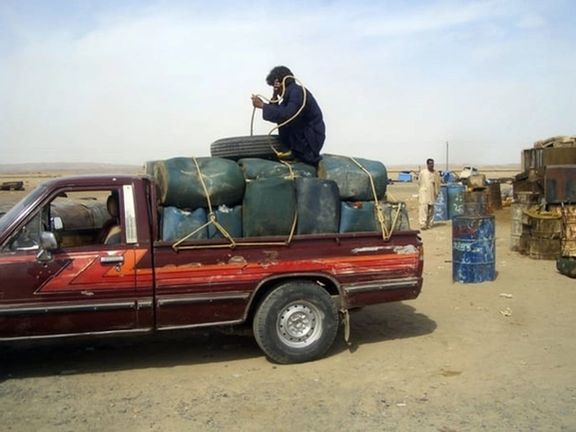
Pakistan has passed a special order to allow barter trade with Afghanistan, Iran and Russia for certain goods, including oil and gas, the Ministry of Commerce said Friday.
Left with barely enough foreign exchange reserves to cover one month's imports, Pakistan's government is desperately trying to manage a balance of payments crisis and bring inflation under control after it hit a record of nearly 38% last month.
The government order, called the Business-to-business (B2B) Barter Trade Mechanism 2023 and dated June 1, lists goods that can be bartered. State and privately owned entities would need approval to participate in the trade mechanism.
Although the United States has designated third-party sanctions on those buying Iranian oil, a barter deal might be overlooked by Washington. China buys large quantities of illicit Iranian crude exports with little push-back by Washington.
After Pakistan's first purchase of discounted Russian oil in April, petroleum minister Musadik Malik told Reuters that Pakistan would only be buying crude, not refined products under the deal.
There was no confirmation about how the payment would be made. But Malik said purchases could rise to 100,000 barrels per day (bpd) if the first transaction went smoothly.
Last year, Pakistan imported 154,000 bpd of crude oil, little changed from 2021, data from analytics firm Kpler showed.
In May, Pakistan Petroleum Dealers Association complained that up to 35% of the diesel sold in Pakistan had been smuggled from Iran.
Pakistan's government has also ordered a clamp down on smuggling of flour, wheat, sugar, and fertilizer to Afghanistan.
Report by Reuters
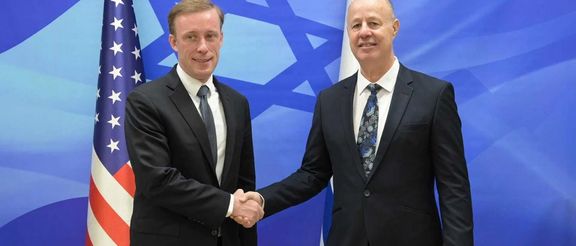
Top US and Israeli national security officials met in Washington Thursday and discussed “enhanced coordination” to prevent Iran from acquiring a nuclear weapon.
Assistant to the President for National Security Affairs Jake Sullivan hosted Israeli National Security Advisor Tzachi Hanegbi and Minister of Strategic Affairs Ron Dermer at the White House to continue high-level discussions following up on the March US-Israeli Strategic Consultative group that had focused on Iran’s nuclear program and “ways to counter threats from Iran and its proxies.”
The meeting followed reports and speculations in recent days that Washington was discussing some possible deals with Iran to secure the freedom of American hostages in Tehran in exchange for expediting the release of Iranian funds frozen in South Korea and Iraq.
A State Department official Thursday told Iran International that US policy has not changed in regard with Iran’s nuclear program and President Joe Biden is “fully committed” not to ever allow Iran to acquire nuclear weapons. The official said that the United States “in full coordination with its allies and partners” is preparing all options to deal with Iran’s nuclear program.
However, the spokesperson reiterated that the administration continues to believe in diplomacy as the best way to achieve this goal, although talks to revive the JCPOA accord are not on Washington’s agenda.
However, the state of US-Israeli relations might not be so clear. Israel’s Channel 13 television reported that US Secretary of State Antony Blinken has called off a planned visit to Israel next week amid tensions between Jerusalem and Washington over Iran.
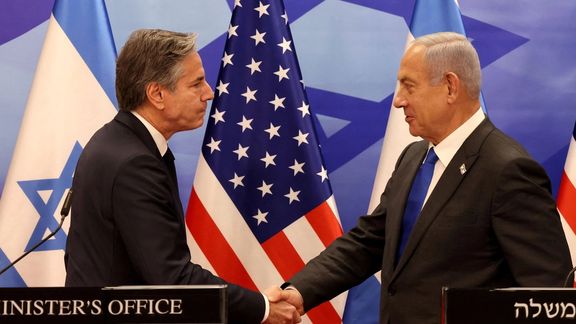
At the same time, Blinken after a meeting with British, French and German foreign ministers tweeted that “I also underscored U.S. concerns about Iran’s nuclear escalation.”
Israeli Prime Minister Benjamin Netanyahu separately in a video message said, "I have heard all of the reports about Iran. I have a sharp and clear message for both Iran and the international community: Israel will do whatever it needs to do to prevent Iran from obtaining nuclear weapons."
Clearly, Israel is demanding tougher responses to continued Iranian nuclear build-up. Whether Jerusalem is insisting on a military attack at this point is not clear, but tougher diplomatic and economic measures are certainly among its demands from Washington.
UN’s nuclear watchdog, the International Atomic Energy Agency, IAEA, issued a report to its members states this week that reportedly said Iran now has 114 kilograms of uranium enriched to up to 60-percent – an increase of 26.6 kg from the previous quarter. This can be easily further enriched to 90-percent purity needed for nuclear weapons in around two weeks.
The IAEA also reported that Iran has shown some flexibility regarding the Agency’s demands. This could be an effort by Tehran to forestall censure at the IAEA board meeting this month. One of Israel’s demands might be a strong condemnation of the Islamic Republic by the board.
About 42 kg of uranium enriched to 60-percent is what the IAEA calls a "significant quantity", defined as "the approximate amount of nuclear material for which the possibility of manufacturing a nuclear explosive device cannot be excluded".
Although Washington says there is no evidence that Iran has decided to proceed and build a weapon, in testimony to Congress in March, Gen. Marky Milley, chairman of the Joint Chiefs of staff, warned that Tehran could “field” a bomb in several weeks, if it made the crucial decision.